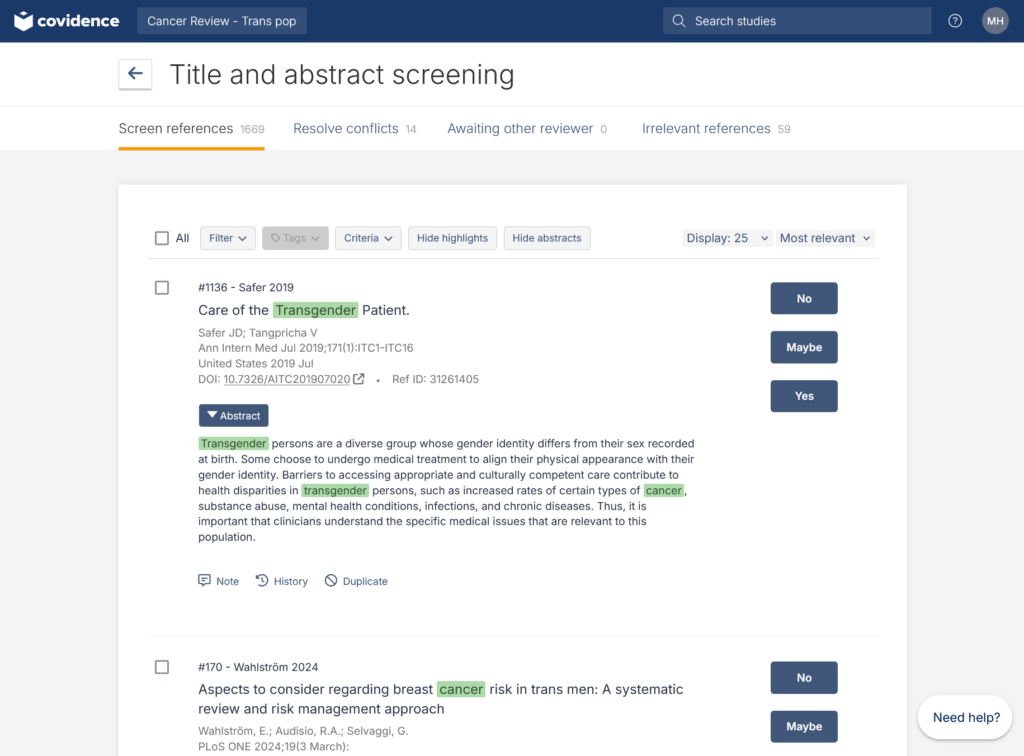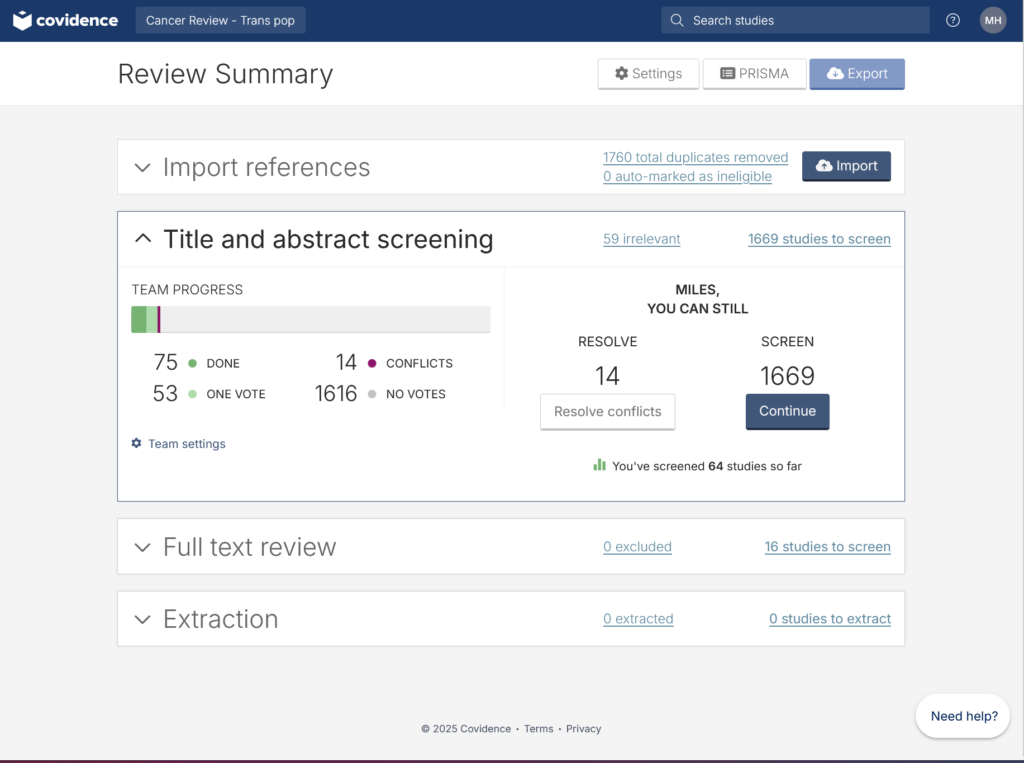Through CSPL 314: The Health of Communities, I’m helping with a research project through the Moses-Weizman Institute at Community Health Center of Middletown, analyzing cancer screening practices among transgender and nonbinary individuals. Working with Dr. Arjee Restar, Maximillian Morris, MPH, Adam Alomari, MPH and a research partner from the class: Ellie Collins. It has been an incredibly informative and fascinating experience for me, getting to work with qualitative data, systematic literature review software like Covidence. Normally, I approach research in general from a quantitative, sociological perspective due to my background in anthropology, but I’ve found that there’s some real value to applying more quantitative methods. I’ve found Covidence itself to be an extremely useful software for collaboration and review, and hope to use it more in the future. You can see a few screenshots of the interface below.
My first observation is that quantitative methods are far more respected by the scientific community, and it’s far easier to get funding for research or projects if you’re using a quantitative approach. I will admit, there’s still a bit of cognitive dissonance involved here — I don’t quite understand why quantitative methods are far more attractive to governmental + research institutions; I’ve always found stories, movies and anecdotes to be more powerful pieces of evidence than so-called “hard” facts. My understanding is that it’s about control and simplicity – when you’re using quantitative data, it’s far easier to control your outcomes, or understand why your outcomes might act in a certain way. While that might be ‘efficient’, it is by no means more accurate. Nevertheless, I’ve found that integrating these quantitative methods more into my research practice has proved useful, and I’ve found myself using sources like Pubmed more and more as a result.

Covidence

Covidence
Leave a Reply